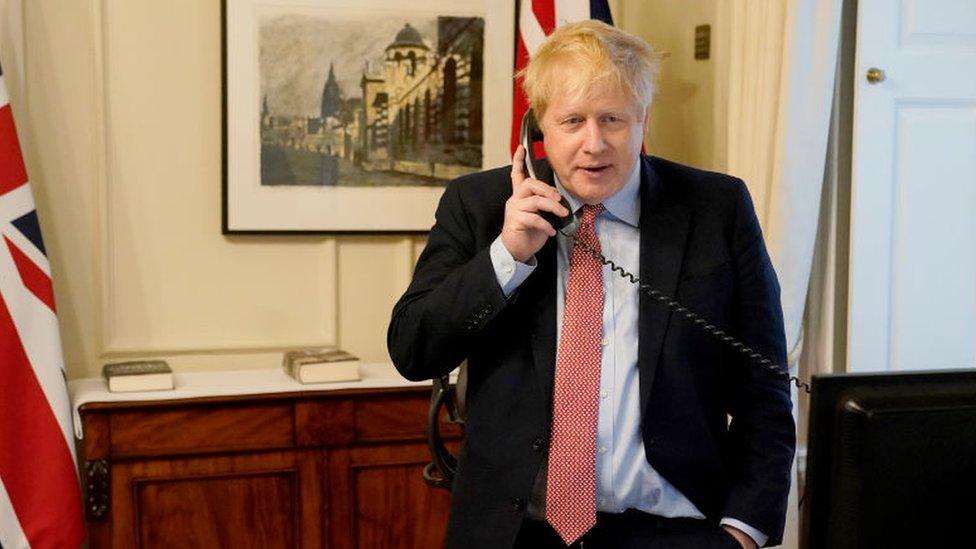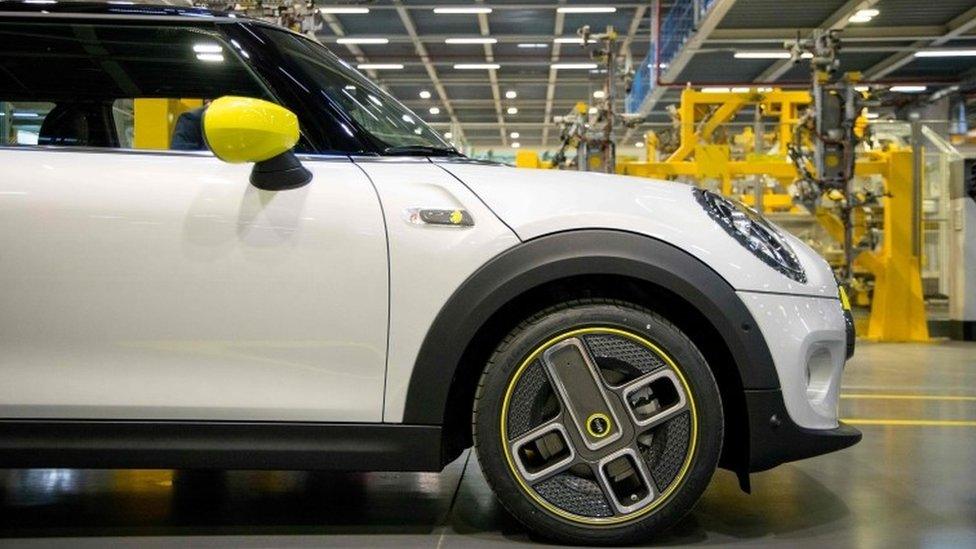Boris Johnson's 22-minute Brexit call 'terrible'
- Published
- comments

Business groups have variously described a 22-minute call with the prime minister and the Cabinet Office Minister Michael Gove as "terrible", "disappointing" and "more of a lecture".
While welcoming the fact that the government would look to set up an emergency task force to help business prepare for end of the Brexit transition period, one attendee said that it "felt like a box ticking exercise - so they can say - yep, we've spoken to business".
Another attendee told the BBC that while the PM and Michael Gove shared no information on the current status of the trade talks with the EU, it seemed Mr Gove was still hopeful a deal was still possible.
The prime minister, who left the call after 15 minutes, was reported as saying that Covid had created "too much apathy" in the business community and they "needed to get ready".
Small business groups pressed for transition vouchers for small traders to pay for their preparation which Michael Gove promised to take up with the Treasury.
While a deal may yet be struck with the EU, many of the new processes facing UK businesses will be required deal or no deal - and the government has made that clear in the last few months.
Michael Gove ended the call by describing it as "a bit like moving house - a bit of disruption till you get used to a bigger and better house".
Business groups were largely and significantly less upbeat.
'Head in the sand'
Last week, Cabinet Office Minister Lord Agnew criticised businesses for taking a "head in the sand approach" when preparing for post-Brexit trade.
He said traders "really must engage in a more energetic way" to be ready for the end of the transition period on 31 December.
It follows claims thousands of UK businesses may need to set up an EU presence if they want to export goods to European markets, according to trade consultants Blick Rothenberg.
Both EU and UK law will require companies to "have a door to knock on" if there are any disputes over payment and compliance with customs changes that will treat the UK as if it were any other non-EU country after 1 January.
On Friday Downing Street said talks between the UK and EU over a post-Brexit trade agreement were "over", but some think the two sides can still find common ground.
- Published2 October 2020
- Published30 September 2020

